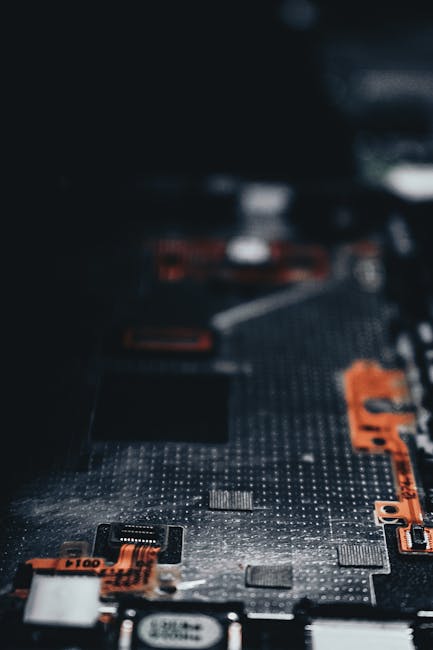Apple’s AR glasses are coming, but they could be too late for Mac fans - Related to scalpers, late, browser, coming,, apple’s
Apple’s AR glasses are coming, but they could be too late for Mac fans

Mac fans received some bad news a week or two ago. No, it wasn’t that the upcoming MacBook Air has been canned or that prices are doubling on the MacBook Pro. It was that Apple had canceled a plan to release a pair of augmented reality (AR) glasses that would pair with a Mac, giving individuals a brand-new way to use their computer in 3D space.
Sure. It sounds like a pretty niche device. But it could have been an interesting stopgap between the Vision Pro — with its big, bulky design that’s ill-suited to long-term use — and a proper pair of AR glasses that don’t need to be connected to your home computer.
Instead, they’re gone, and. The question now is simple: what’s next for Mac consumers?
In other words, it sounds an awful lot like we’ll have a long wait on our hands before Apple releases its AR glasses. If you want a virtual workspace, complete with as many floating windows as you can manage, your only option is the Vision Pro — and with Apple not expected to launch its glasses until 2027 at the very earliest, things will likely stay that way for years to come.
That’s a problem because while the Vision Pro has many benefits for Mac clients — not least its expandable workspace, impressive processing power and. Superb visuals — it’s still a flawed option for anyone pairing it with one of Apple’s computers.
Take the most basic issue: its size and weight. Considering work is one of its main uses, anyone who wants a virtual workspace will need to use it for hours at a time. Yet countless people have reported that doing so results in uncomfortable neck strain and large prints left on your face. That’s one area where a pair of AR glasses would have a clear advantage.
We’ve heard intermittent rumors that Apple is working on a lighter follow-up to the Vision Pro, and. It could even launch this year. But it’s unlikely to depart too far from the Vision Pro’s established form factor, so I’m not expecting its weight savings to be substantial. Without even a stopgap AR glasses project on the way, we’re going to have to put up with the discomfort for a while longer.
Perhaps this shouldn’t be too surprising. After all, Apple is well known for taking its time and trying to make the best product it can. Rather than rushing to market with a half-baked device that quickly falls flat. Yet perhaps that approach is not the optimal one this time around.
For one thing, the Vision Pro took years of refinement and untold sums of money to develop, yet it is undoubtedly. As Gurman put it, a “flop” that hasn’t sold in anything like the numbers that Apple was likely hoping for. Sometimes, slow and steady doesn’t win the race.
And there’s another issue. While Apple is pacing itself and trying to perfect everything about its AR glasses. Its rivals are already hitting store shelves with popular products of their own. We’re not just talking about risky upstarts and minnow companies either — Meta has released its own AR glasses that have won plenty of plaudits.
Apple isn’t just getting outmaneuvered by the small. Nimble players — even the giants are beating it to the punch. Perhaps I wouldn’t be so worried if we knew Apple planned to imminently launch its own device, but that’s not the case. It risks being left behind by its powerful competitors.
Hopefully, plenty of lessons from the Vision Pro and. Will (eventually) launch something that’s a hit with its individuals. As a Mac fan who’s intrigued by AR’s potential, I’ll be keenly watching from the sidelines. But I just wish Apple would pick up the pace and not leave its Mac individuals waiting in the dark for so long.
Table of Contents Table of Contents What does an AI PC need? CPU Motherboard Graphics card Memory Storage Power Put it all together.
Table of Contents Table of Contents HP Color LaserJet Pro 4301fdw Canon imageClass MF653Cdw HP Color LaserJet Pro MFP 3301fdw Brother HL-L3295CDW Cano...
Auf einem Ryzen 7 9800X3D bringt der Wechsel von RTX 4090 auf RTX 5090 im UHD-GPU-Testparcours mit Fokus auf die GPU-Last im Durchschnitt 24 Prozent m...
Zotac fights GPU scalpers by selling RTX 50-series cards on Discord

The latest Nvidia graphics cards are impossible to find at retailers, and. You’ll be paying double or triple the already-high price if you try to get one on the secondary market. But Zotac is trying to help out its most loyal end-people by selling directly to them in the US, skipping stores altogether and. Going right to buyers via Discord. It’s a novel approach.
If you’re an old person like me, Discord is sort of like Slack or Microsoft Teams but much more annoying. Though it was . In that sense, it seems like a natural fit for direct sales, if not without a few organizational hurdles to leap.
In a message on its Discord server (spotted by PCMag), Zotac USA representative Bryant says:
“We want to reward real gamers and active members by giving you the chance to secure a slot to purchase a Zotac Gaming GeForce RTX 5080 or 5090 — no bots, no scalpers. Just my fellow gamers.”.
In order to be eligible for the program, you need to be an active member of the Zotac Discord server. The more engagement, the advanced. That seems like a pretty easy way to weed out any new accounts. Those selected will be contacted directly and limited to just one GPU purchase, offered at MSRP. Stock for this program is incredibly low — as of Friday, February 7th, only ten RTX 5080 variants are part of the Discord program. The announcement post has over a thousand likes.
Of course, nothing would stop a lucky winner (winner in the sense that they “win” the chance to give Zotac $1,000+. I suppose) from flipping that high-powered graphics card right away. And while Zotac couldn’t stop them, they’ll be watching and enforcing a zero-tolerance policy for resellers. “All serial numbers are recorded to track and verify purchases. We will publicly expose you if you’re caught.”.
So if someone, say, tried to register their card for the OEM warranty and it didn’t match the identity of the original Discord buyer, they’d be disqualified from any future Discord purchases and. Paraded up and down the server for their naughtiness. (I hope Zotac adds a custom emote reaction, something along the lines of the “SHAME. SHAME!” bell from Game of Thrones.).
Bryant has since walked back their initial zeal. An updated version of the message omits the slightly ominous language, saying instead. “Your Discord username will be on a ban list for future raffles… I apologize. I did not mean to threaten doxxing.” It’s okay, Bryant. I think we all understand a little extra enthusiasm here.
That expressed, it’s a bit of a Sophie’s Choice. Hate on scalpers all you want (and I do!), but if someone offered you a way to instantly make a month’s rent via a quick eBay auction, and all it would cost you is the everlasting scorn of random Discord clients. I don’t think I could blame you.
In a recent lawsuit, Meta has been accused of using pirated books to train its AI models, with CEO Mark Zuckerberg’s approval. As per Ars Technica, th...
Known for its display technology, Samsung has expanded the innovation of the ever-evolving eInk or ePaper. Having introduced its latest screen with im...
Looks like the Edge Browser can’t be uninstalled after all

I hate to be the bearer of bad news, but , you won’t be able to uninstall Microsoft Edge from your computer. In an alleged “uninstall” support document, Microsoft doesn’t mention how to uninstall Edge; instead, it tries to convince you why you should keep it.
The uninstall document that Microsoft released is supposed to explain how to uninstall the Edge browser. Still, it only reveals a checklist of supposed advantages over Chrome, which isn’t entirely accurate. The table mentions Vertical Tabs, Copilot, Read Aloud, Designer, Coupons, and VPN.
The document is disappointing since it comes after Microsoft’s well-received privacy updates for Chrome’s incognito mode. Which were a big win for individuals. Therefore, this is a step back for the software giant with this “uninstall” document, something many individuals aren’t going to like.
We’re used to Microsoft trying to get us to use their services, but. This one feels like a low blow. However, a enterprise doing anything it can to try and make you stay isn’t uncommon. For example, when canceling your PlayStation Plus subscription, Sony tries to get you to stay with an offer on a 12-month premium subscription.
Microsoft Edge has excellent elements, such as a free VPN with 5GB of data, AI image editing with Microsoft Designer. And built-in shopping tools. However, you can also use more popular options, such as ProtonVPN and Canva. The comparison table is great for comparing the two browsers, but the uninstall information is conspicuous by its absence.
What just happened? Not long after Meta agreed to pay Donald Trump $25 million to settle a lawsuit over his suspension from the platform following the...
A hot potato: A widespread scandal involving used Seagate hard drives fraudulently sold as new has continued to escalate. With new evidence suggesting...
Hospital Sisters Health System files new research with the Maine Attorney General.
It confirmed more than 800,000 affected in an August 2023 breach.
Market Impact Analysis
Market Growth Trend
| 2018 | 2019 | 2020 | 2021 | 2022 | 2023 | 2024 |
|---|---|---|---|---|---|---|
| 4.9% | 5.9% | 6.2% | 6.9% | 7.3% | 7.5% | 7.6% |
Quarterly Growth Rate
| Q1 2024 | Q2 2024 | Q3 2024 | Q4 2024 |
|---|---|---|---|
| 6.9% | 7.2% | 7.4% | 7.6% |
Market Segments and Growth Drivers
| Segment | Market Share | Growth Rate |
|---|---|---|
| Semiconductors | 35% | 9.3% |
| Consumer Electronics | 29% | 6.2% |
| Enterprise Hardware | 22% | 5.8% |
| Networking Equipment | 9% | 7.9% |
| Other Hardware | 5% | 5.3% |
Technology Maturity Curve
Different technologies within the ecosystem are at varying stages of maturity:
Competitive Landscape Analysis
| Company | Market Share |
|---|---|
| Apple | 18.7% |
| Samsung | 16.4% |
| Intel | 12.9% |
| NVIDIA | 9.8% |
| AMD | 7.3% |
Future Outlook and Predictions
The Apple Glasses Coming landscape is evolving rapidly, driven by technological advancements, changing threat vectors, and shifting business requirements. Based on current trends and expert analyses, we can anticipate several significant developments across different time horizons:
Year-by-Year Technology Evolution
Based on current trajectory and expert analyses, we can project the following development timeline:
Technology Maturity Curve
Different technologies within the ecosystem are at varying stages of maturity, influencing adoption timelines and investment priorities:
Innovation Trigger
- Generative AI for specialized domains
- Blockchain for supply chain verification
Peak of Inflated Expectations
- Digital twins for business processes
- Quantum-resistant cryptography
Trough of Disillusionment
- Consumer AR/VR applications
- General-purpose blockchain
Slope of Enlightenment
- AI-driven analytics
- Edge computing
Plateau of Productivity
- Cloud infrastructure
- Mobile applications
Technology Evolution Timeline
- Technology adoption accelerating across industries
- digital transformation initiatives becoming mainstream
- Significant transformation of business processes through advanced technologies
- new digital business models emerging
- Fundamental shifts in how technology integrates with business and society
- emergence of new technology paradigms
Expert Perspectives
Leading experts in the hardware tech sector provide diverse perspectives on how the landscape will evolve over the coming years:
"Technology transformation will continue to accelerate, creating both challenges and opportunities."
— Industry Expert
"Organizations must balance innovation with practical implementation to achieve meaningful results."
— Technology Analyst
"The most successful adopters will focus on business outcomes rather than technology for its own sake."
— Research Director
Areas of Expert Consensus
- Acceleration of Innovation: The pace of technological evolution will continue to increase
- Practical Integration: Focus will shift from proof-of-concept to operational deployment
- Human-Technology Partnership: Most effective implementations will optimize human-machine collaboration
- Regulatory Influence: Regulatory frameworks will increasingly shape technology development
Short-Term Outlook (1-2 Years)
In the immediate future, organizations will focus on implementing and optimizing currently available technologies to address pressing hardware tech challenges:
- Technology adoption accelerating across industries
- digital transformation initiatives becoming mainstream
These developments will be characterized by incremental improvements to existing frameworks rather than revolutionary changes, with emphasis on practical deployment and measurable outcomes.
Mid-Term Outlook (3-5 Years)
As technologies mature and organizations adapt, more substantial transformations will emerge in how security is approached and implemented:
- Significant transformation of business processes through advanced technologies
- new digital business models emerging
This period will see significant changes in security architecture and operational models, with increasing automation and integration between previously siloed security functions. Organizations will shift from reactive to proactive security postures.
Long-Term Outlook (5+ Years)
Looking further ahead, more fundamental shifts will reshape how cybersecurity is conceptualized and implemented across digital ecosystems:
- Fundamental shifts in how technology integrates with business and society
- emergence of new technology paradigms
These long-term developments will likely require significant technical breakthroughs, new regulatory frameworks, and evolution in how organizations approach security as a fundamental business function rather than a technical discipline.
Key Risk Factors and Uncertainties
Several critical factors could significantly impact the trajectory of hardware tech evolution:
Organizations should monitor these factors closely and develop contingency strategies to mitigate potential negative impacts on technology implementation timelines.
Alternative Future Scenarios
The evolution of technology can follow different paths depending on various factors including regulatory developments, investment trends, technological breakthroughs, and market adoption. We analyze three potential scenarios:
Optimistic Scenario
Rapid adoption of advanced technologies with significant business impact
Key Drivers: Supportive regulatory environment, significant research breakthroughs, strong market incentives, and rapid user adoption.
Probability: 25-30%
Base Case Scenario
Measured implementation with incremental improvements
Key Drivers: Balanced regulatory approach, steady technological progress, and selective implementation based on clear ROI.
Probability: 50-60%
Conservative Scenario
Technical and organizational barriers limiting effective adoption
Key Drivers: Restrictive regulations, technical limitations, implementation challenges, and risk-averse organizational cultures.
Probability: 15-20%
Scenario Comparison Matrix
| Factor | Optimistic | Base Case | Conservative |
|---|---|---|---|
| Implementation Timeline | Accelerated | Steady | Delayed |
| Market Adoption | Widespread | Selective | Limited |
| Technology Evolution | Rapid | Progressive | Incremental |
| Regulatory Environment | Supportive | Balanced | Restrictive |
| Business Impact | Transformative | Significant | Modest |
Transformational Impact
Technology becoming increasingly embedded in all aspects of business operations. This evolution will necessitate significant changes in organizational structures, talent development, and strategic planning processes.
The convergence of multiple technological trends—including artificial intelligence, quantum computing, and ubiquitous connectivity—will create both unprecedented security challenges and innovative defensive capabilities.
Implementation Challenges
Technical complexity and organizational readiness remain key challenges. Organizations will need to develop comprehensive change management strategies to successfully navigate these transitions.
Regulatory uncertainty, particularly around emerging technologies like AI in security applications, will require flexible security architectures that can adapt to evolving compliance requirements.
Key Innovations to Watch
Artificial intelligence, distributed systems, and automation technologies leading innovation. Organizations should monitor these developments closely to maintain competitive advantages and effective security postures.
Strategic investments in research partnerships, technology pilots, and talent development will position forward-thinking organizations to leverage these innovations early in their development cycle.
Technical Glossary
Key technical terms and definitions to help understand the technologies discussed in this article.
Understanding the following technical concepts is essential for grasping the full implications of the security threats and defensive measures discussed in this article. These definitions provide context for both technical and non-technical readers.
CPU intermediate
ASIC intermediate
RAM intermediate
platform intermediate
API beginner
 How APIs enable communication between different software systems
How APIs enable communication between different software systems

